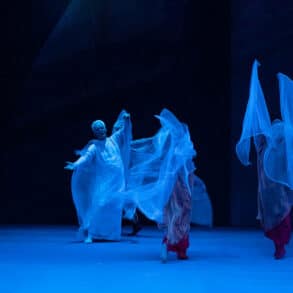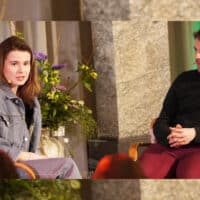In The Philosophy of Spiritual Activity,1 Rudolf Steiner frequently refers to feeling as a soul event. In Chapter 3, he starts by sharply distinguishing feeling from active thinking, which cannot be observed while it is occurring. He says that feeling is observable, along with certain other soul activities (having thoughts or mental pictures, wishes, and cravings). Again, in contrast to active thinking, which is universal, feeling is attributed to the individual personality.
Active thinking takes on a personal and individual character, a mood of its own, through feeling; how my feelings accompany my active thinking distinguishes me from other people—again, in contrast to the thinking of pure ideas, which connects me with all people (Ch. 5). In Chapter 6, he continues this line of thought, and we find the first presentation of feeling given in regard to the human being’s soul constitution: “But we don’t content ourselves with relating a perception to a concept through the aid of thinking, rather we also relate the perception to our unique subjectivity, to our individual ‘I.’ The expression of this individual relation is a feeling, which lives as pleasure or displeasure.”
An actual definition of feeling follows in Chapter 8: “Feeling is a purely individual act, the relationship of the external world to ourselves as subject, insofar as this relationship is expressed in a merely subjective experience.”
Here Rudolf Steiner progressively delimits and differentiates feeling from other soul and soul-spiritual facts. Initially, feeling is characterized as an event of the individual, as something that arises in or happens to the individual. In this chapter, the personal individual is characterized by active thinking—a universal instrument of cognition having nothing to do with the individual as such—and as having mental pictures, feeling, and willing.
Consequently, the “individual act” is not an actual activity of the individual but merely an event that occurs for this individual. Up to this point, this definition could also be applied to having thoughts and to having wishes, desires, etc. But now, in the next part of the sentence, a directional relationship is given, “the relation of the external world to our subject.” This could also be said of thoughts (in contrast to active thinking): the spontaneous knowledge [Wissen] that the object in front of me is a rose says more about me as an individual in the above sense—about my socialization, upbringing, and habits—than about the rose. However, here, “relation” does not refer to a thinking or mental relationship but rather a relationship that is a direct experience (as we can see from the rest of the sentence and the following paragraph): “In feeling, [the ‘I’] experiences a relation of object to its [the ‘I’s own] subject; in the will, this relationship is inverted.”
With this sentence, we come to an idea of feeling: it is an individual or directly experienced relationship of the outside world (perceived object) to me as a subject. The object gains a relation or a value to my soul through the fact that I feel something about it.
The last part of the sentence is even more precise: it’s not some kind of experience in the external world (in the case of visual experiences, for example, contrast effects, colored shadows, or the sensory-moral effects of colors) but merely a subjective experience. To avoid misunderstanding, we again refer to the last sentence of the above-quoted paragraph from Chapter 6, which states this directional relationship between object and subject and adds: “The expression of this individual relation is a feeling, which lives as pleasure or displeasure.”
Although Steiner doesn’t promote the use of definitions, he does use it here as technique or way of thinking to arrive at a more precise characterization of feeling. Of course, he doesn’t begin with this definition, but instead gradually guides the reader and fellow thinker closer and closer, removing the outer layers, and finally getting to the core of feeling.
Event
Rudolf Steiner lesen und verstehen [Reading and understanding Rudolf Steiner]: Conference of the Section for the Literary Arts and Humanities at the Goetheanum, May 1–4, 2025, with Andre Bartoniczek, Anna-Katharina Dehmelt, Ariane Eichenberg, Volker Frankfurt, Eckart Förster, Christiane Haid, Jaap Sijmons, and Renatus Ziegler.
More Section for the Literary Arts and Humanities
Translation Joshua Kelberman









